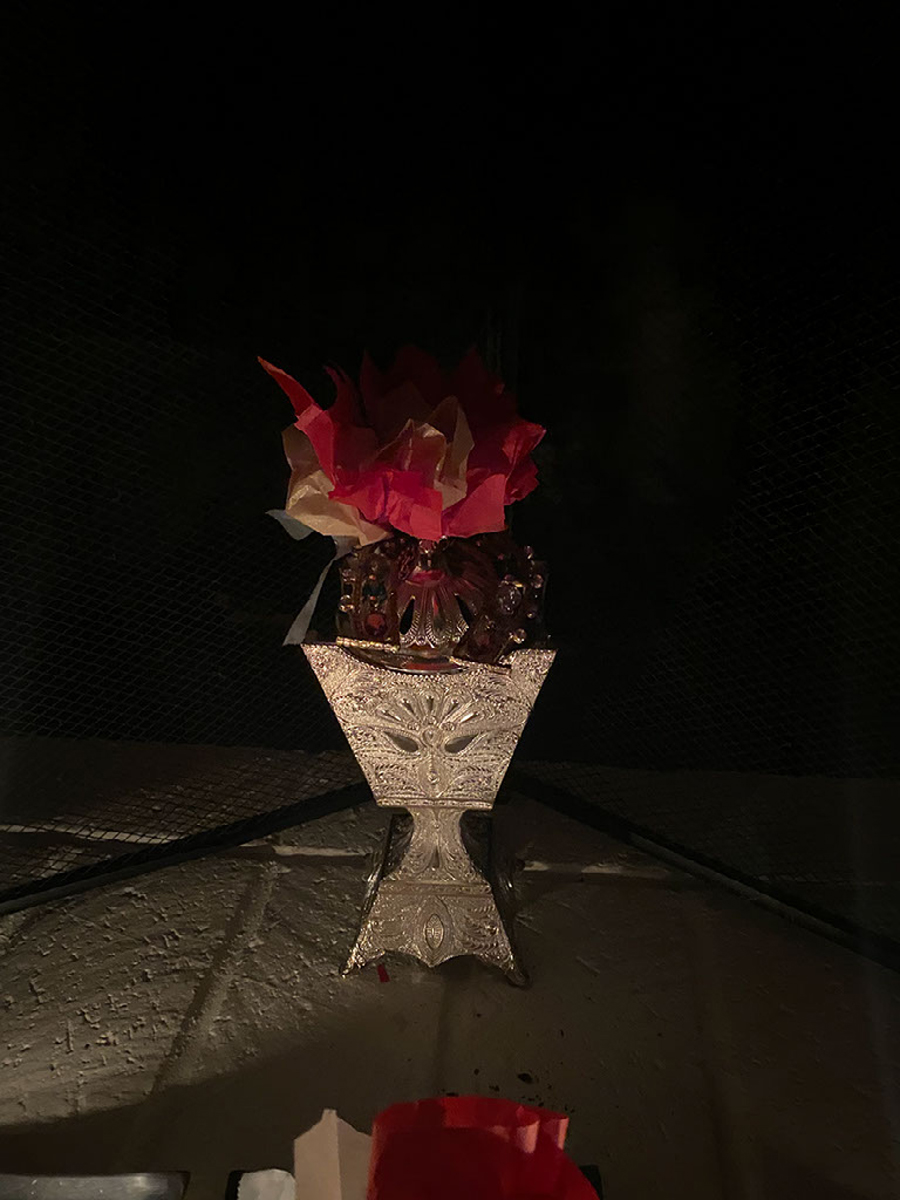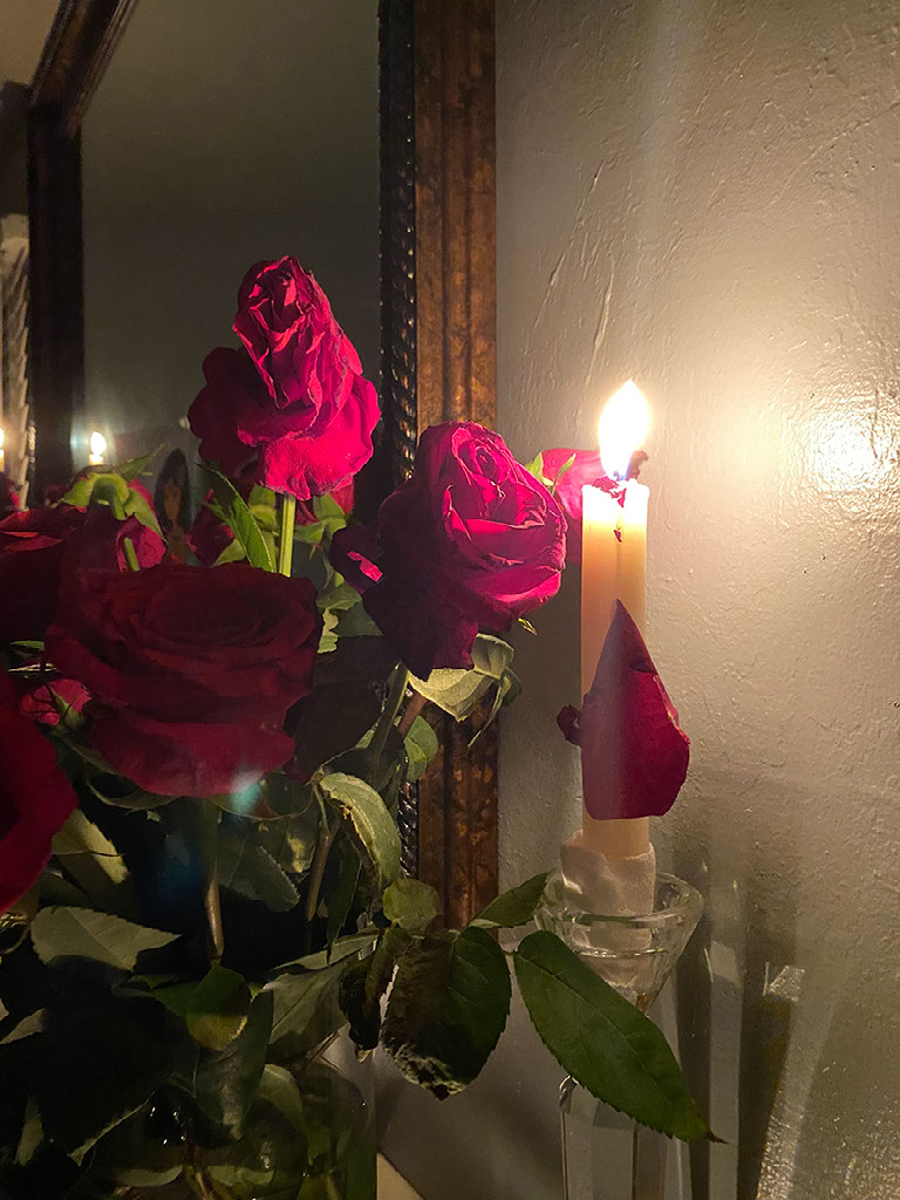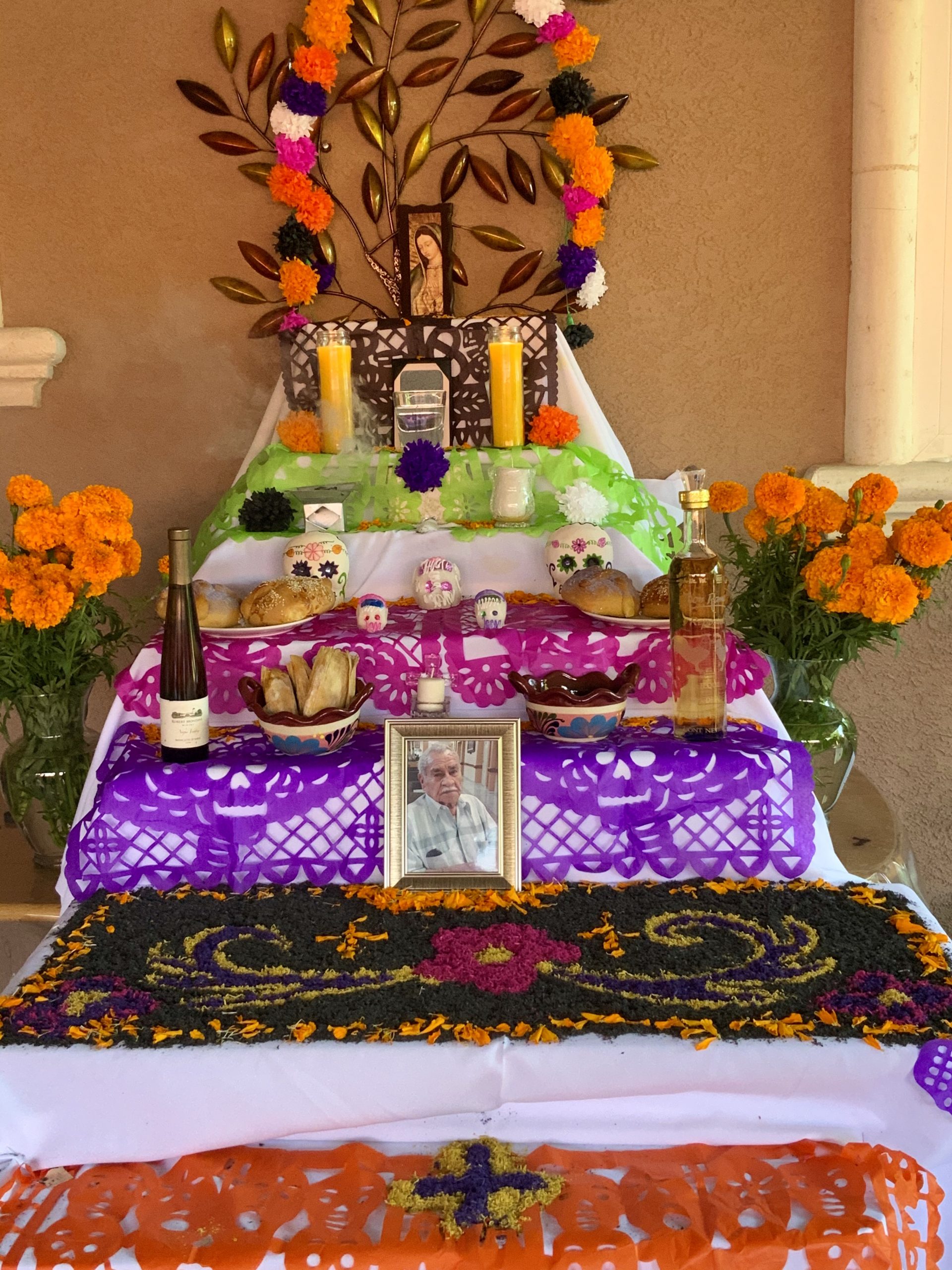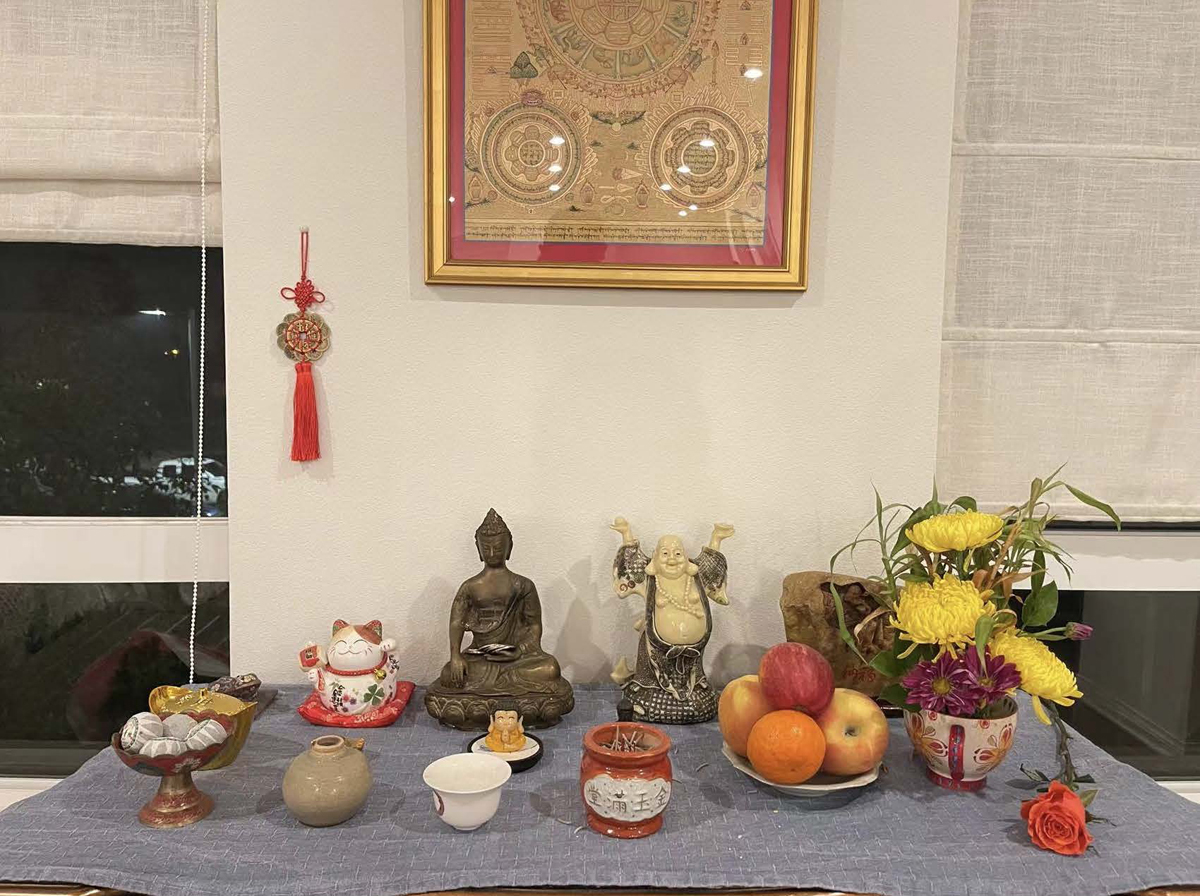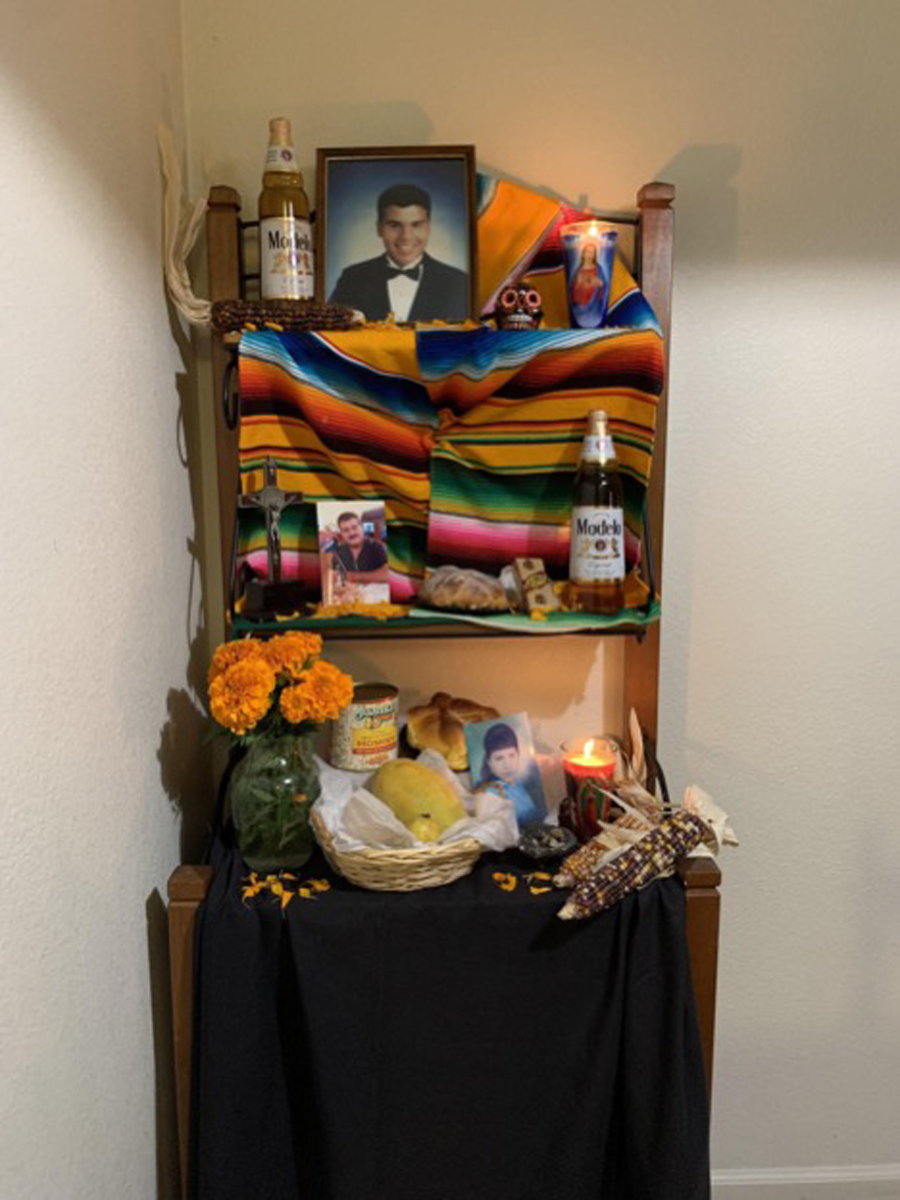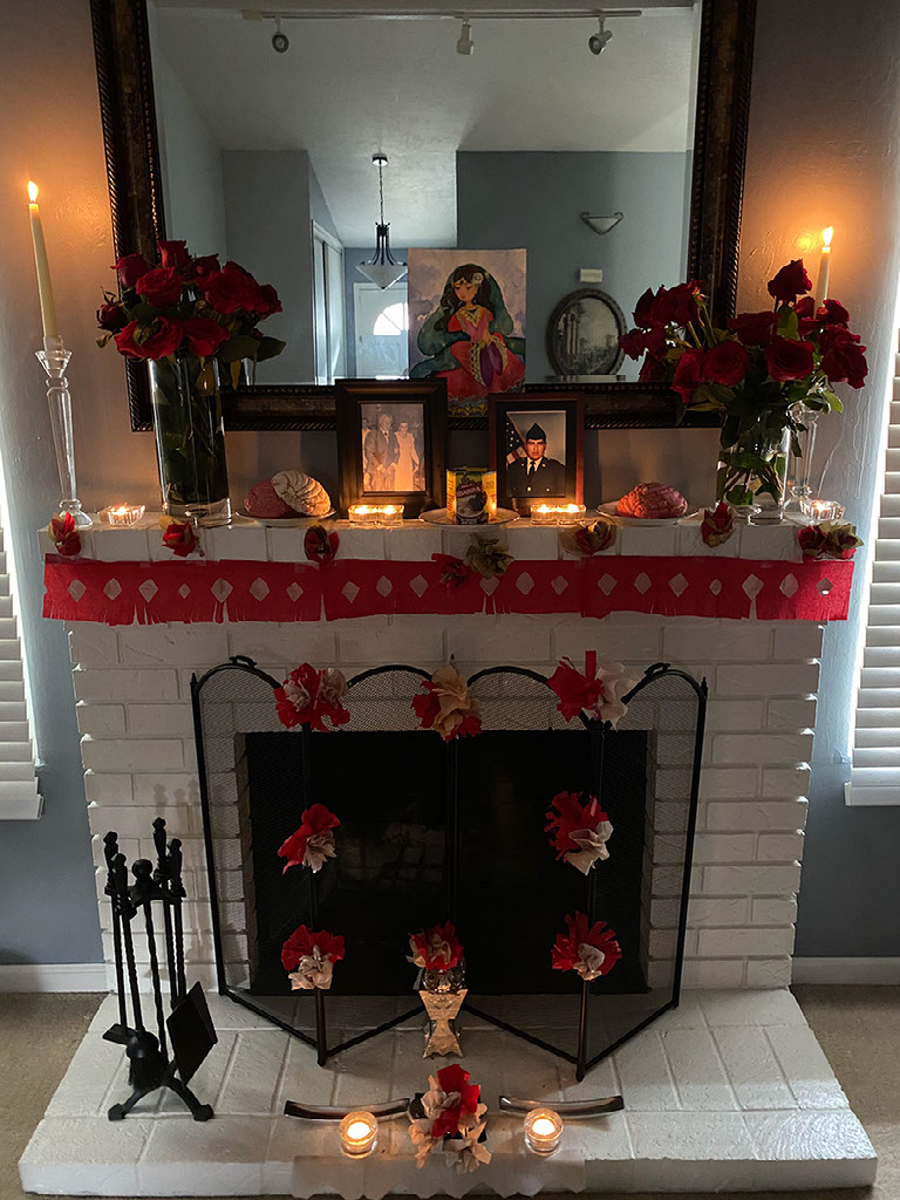
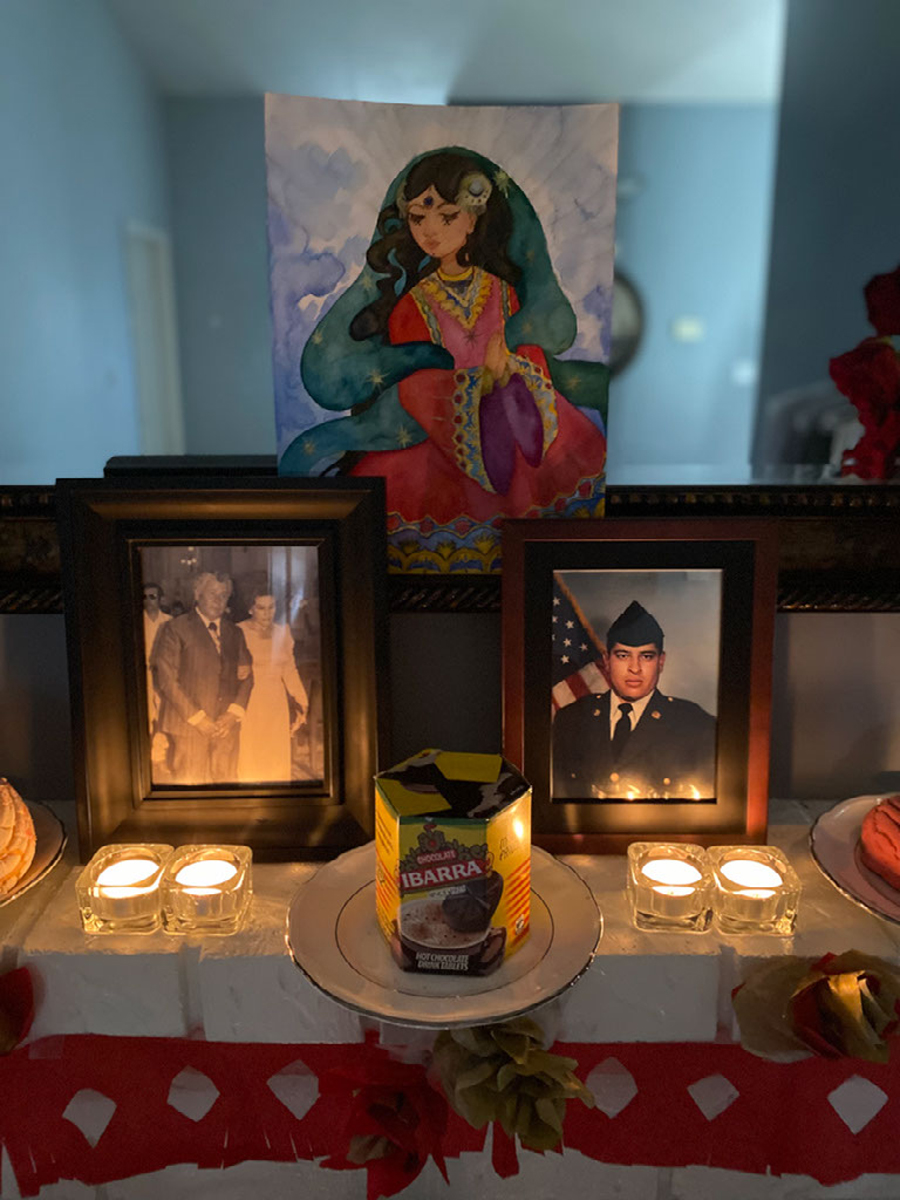
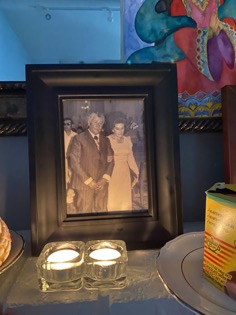
This is an image of my great-grandmother and great-grandfather from my mother’s side. My great-grandmother, affectionately called Mama Rosita, had a hard life. Her mother died when she was three by being ran over while pregnant, and her father a month later from a broken heart. She grew up in Mexico City with her aunt, until being made to move with her other siblings by other aunties to a small town in Guanajuato. She did not like how she wasn’t allowed to wear what she wanted, having to wear long skirts versus the 1930s babydoll dress style that many kids were emulating. She was also cut off from the city where she lived most of her childhood, in which she often visited art museums and events. She wasn’t even allowed to get married, as the youngest, and was expected to take care of the rest of the family. Often Mexican girls are forced into these positions, having to play a specific role in society that ties them down.
But then, she met my great-grandfather, Papaleito. His family came originally from Jalisco, but he visited her town often. One day her aunts left her outside to eat ice cream while they attended to a few chores outside, when Papaleito saw her and approached her. They made a promise to write letters to each other, and wrote to each other secretly for many months. Eventually, he came to ask for her hand, and the aunts could not say anything, for they were in love. He gave her anything she wanted and was forever loyal, and they were together until the end.
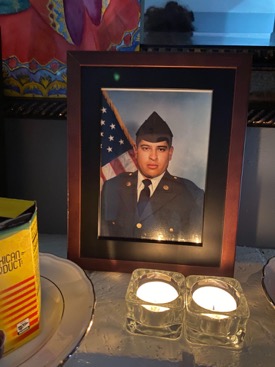
This is my second cousin, Jesus Angel. He served the United States in the Middle-East as a soldier during much of that long period in the 2000s. He did not die in combat, but as a result of the troubling things war did to his life. He saw many friends and innocents die, and had horrible PTSD. This led him to having many health problems from mental to physical.
After only a few moments calling to schedule an appointment for his heart, he died of a heart attack at 38. This shocked my whole family, especially my mom who grew up playing with him and saw him like a younger brother. He was very kind, and always tried helping his family.
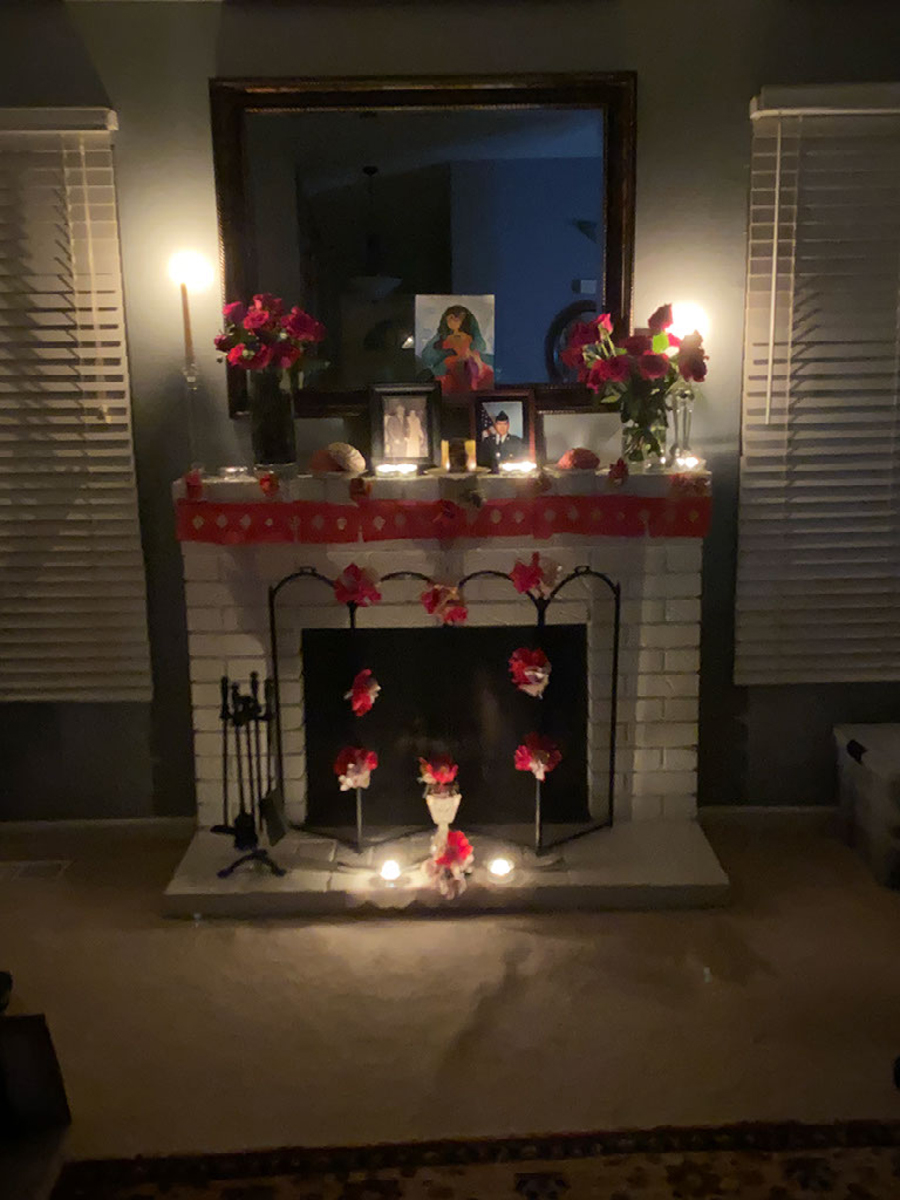
If I could I would add Afghan traditional clothes, jewelry, the traditional Mexican clothes, and other things I feel like define my cultures and would honor my marginalized people, but I simply do not have access to these things easily. That is what troubles me the most, that as an artist that strives to represent my people, I do not have access to many of our traditions, and even information. I can’t afford to get dresses from my cultures, and in the case for Mexican and Afghan dress in general, have no way to access the country it comes from due to Cartels and terrorism. The traditions of embroidery passed down through the family are hard to find as well, as no one has the time in this country to pass down the skill. It is not easily accessible, and what I do know, and have poured into that one art piece that stands as the main saint to this altar, has been a result of obsessive research and careful observation of my limited experiences.
I did what I could with what I had, added both sides of myself throughout the piece from roses to incense to a painting. When you are a brown minority you can’t access your culture easily, even when you strive to represent the people who have died in unjust ways. We have to make do with what we can, and continue making new things that become our culture. The mix of both sides of my family, Afghan and Mexican, have led me to embracing both sides, and wanting to stand up for both marginalized peoples.
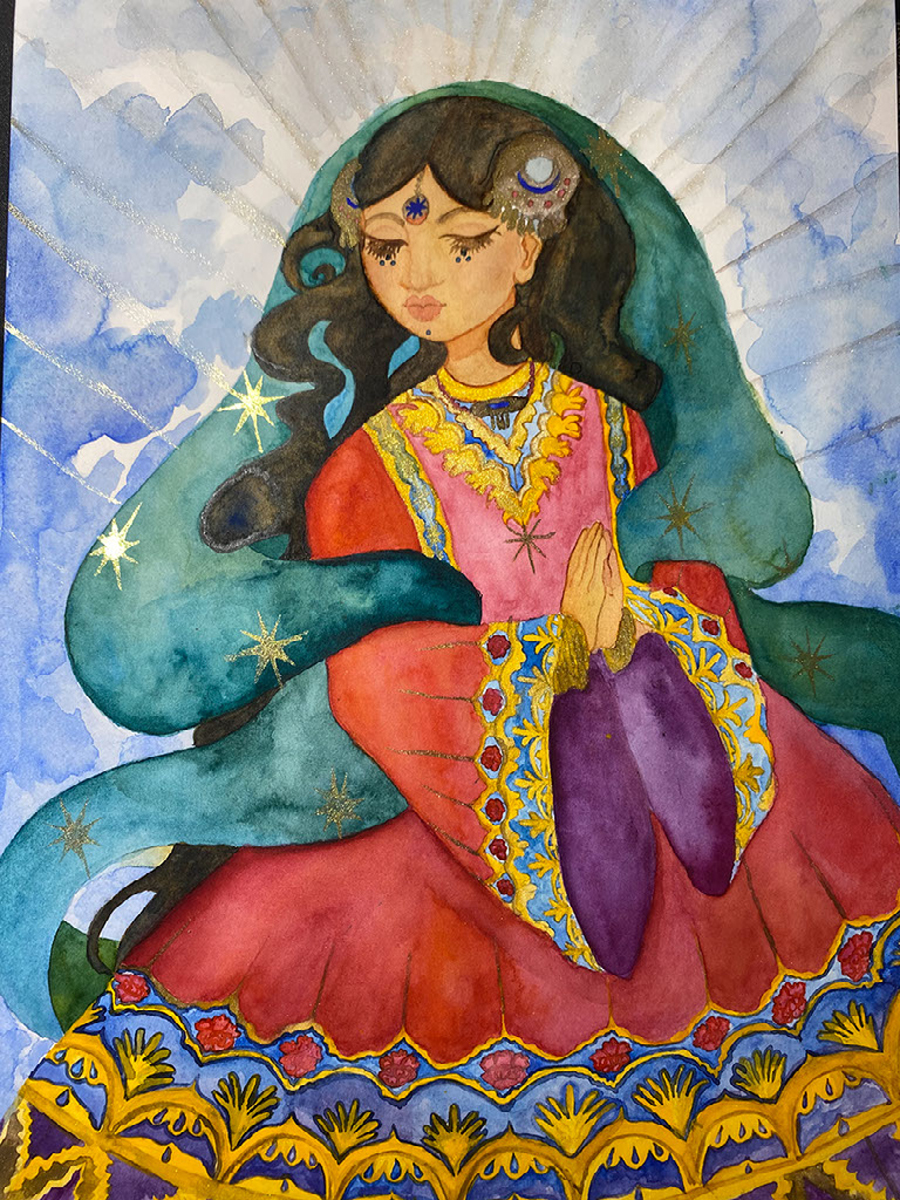
That’s why I made this piece. We need hope, and for someone to look after those who have suffered and are suffering. Many have died as a result of conflicts such as the Taliban or cartels, trying to immigrate to access a better life elsewhere, and for being as they are in their gender or sexuality.
Our Lady Guadalupe is a mixed person, who grants the wishes to those regardless of background, and especially to the vulnerable. As a mixed person myself, in many different aspects even within those Afghan and Mexican identities, she is someone I can look up to.
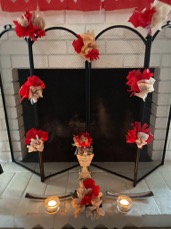
Papel picado flowers were added to adhere to the imagery of the roses associated with Our Lady, and are also seen as an important flower to Afghans as it is renowned for its beauty and use in many parts of life, including food.
Also included here are three different silver incense holders from Afghanistan. We often burn incense to promote wellness, and in this case, to honor those who have died.
